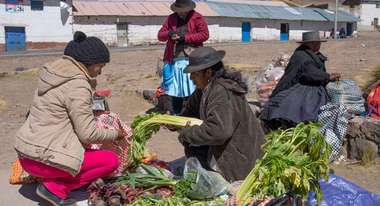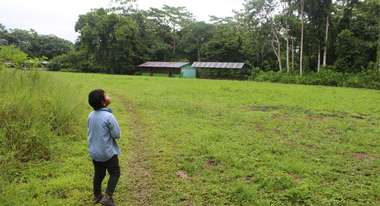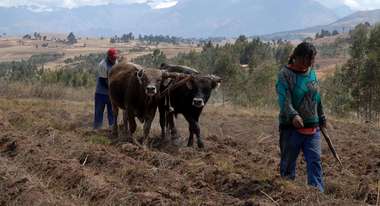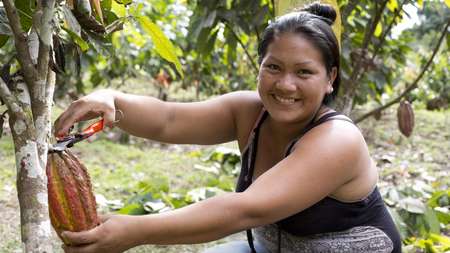
Strengthening Smallholders' Land Rights
Bolivia and Peru can boast several years of steady economic progress. The so-called developing countries have advanced to a medium income level. Their development model relies on the exploitation of natural resources and an export-oriented agricultural industry. This often comes at the expense of the smallholders and indigenous communities. Welthungerhilfe helps them change this and claim their land rights.
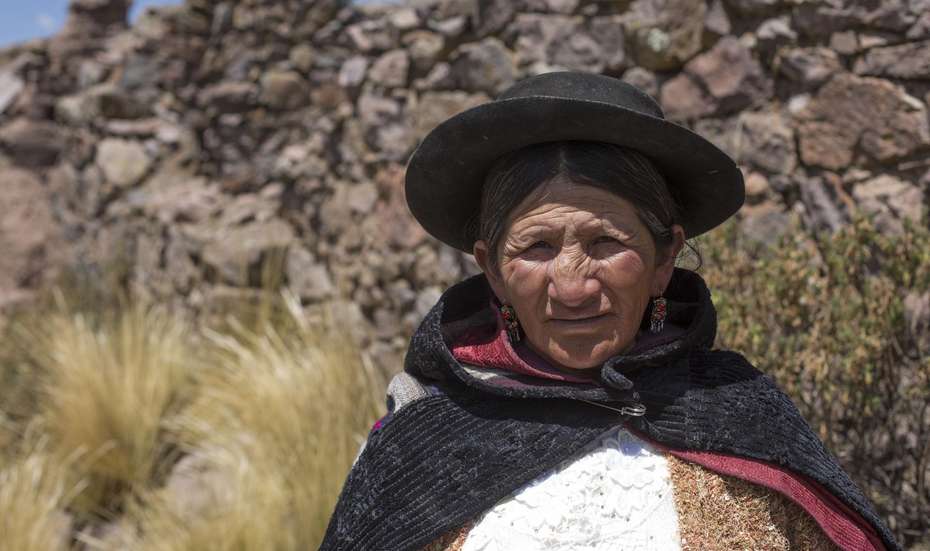
Economic Progress Leads to Social Inequality
The government of Peru has allocated a total of 40% of Peruvian territory to for-profit private enterprises for natural resource exploitation and large-scale agricultural production. More and more foreign investors are also buying land. Large enterprises are increasingly frequently competing for land with small agricultural producers and indigenous communities.
Hilda Machuca lives in Choclococha in the High Andes and raises alpacas. “In the past, we were able to earn a living by selling our animals. Now, my herd is much too small.” The past was before the massive expansion of the canal system on the plateau. The canal supplies Ica, the centre of the export-oriented agricultural industry, with water. The Andean residents are left with the downsides. “The lake used to be much shallower, but when the canal was built, the water level rose, resulting in flooding during the rainy season that rendered our old village uninhabitable. We can no longer use the pastures, either,” explains Hilda. In order to pay the bills, she now also runs a small shop on the side.
Private investments cannot be allowed to harm the human and land rights of the local population. Secure rights of access to land are essential for upholding the universal human right to food. The UN Guidelines for land rights support this view. Welthungerhilfe and its partner organisations in Peru and Bolivia are supporting those affected with education and legal aid.
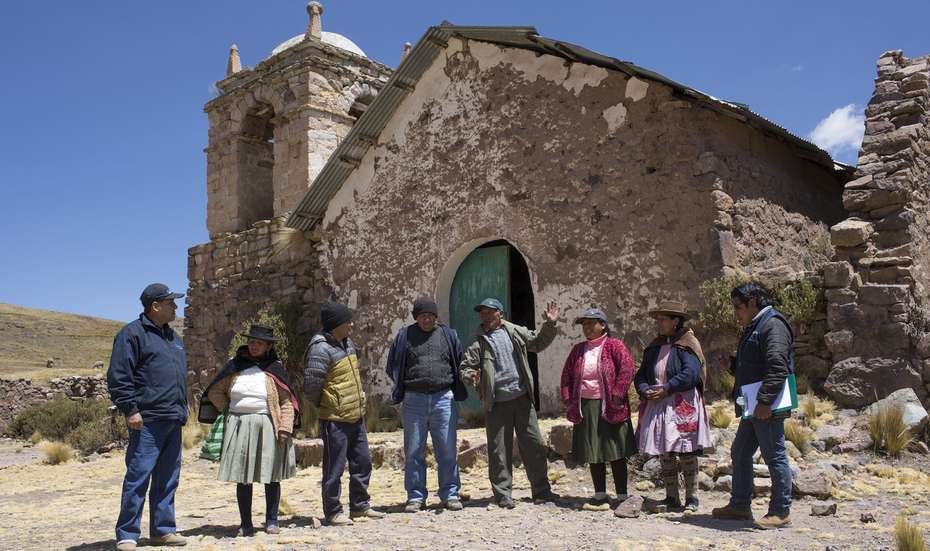
Smallholder family enterprises produce 60-70% of the basic food supply, making them indispensable for feeding the population as a whole. Many have been cultivating the same plots of land for generations. However, registered land titles are not standard, with people relying on informal common- or land-use laws instead. “We need good arguments in order to be able to negotiate with the government for our rights,” says Jorge Prado, Secretary General of the Confederatión Campesina Peru (CCP), a federation that has been representing the rights of farming and indigenous communities in Peru for a number of decades. It takes courage to fight for one’s rights.
In Bolivia, Welthungerhilfe is helping the NGO Fundación TIERRA to achieve better political, legal and social conditions for indigenous communities and smallholders. The partners are invoking the UN Guidelines on land rights, which represent an historical breakthrough. Their current objective is to ensure that all participants know the rules of the game as determined in these Guidelines. “You cannot claim rights that you do not know about,” says Pedro Castillo, a land policy expert at the Peruvian Centre for Social Studies (CEPES). By the same token, government officials and investors can only apply the Guidelines if they are familiar with them. What exactly do these UN Guidelines entail?
UN Guidelines for Greater Equality
The United Nations Committee on World Food Security (CFS) unanimously passed the Guidelines in May 2012: “Voluntary Guidelines on the Responsible Governance of Tenure of Land, Fisheries and Forests.” The awkward title hides a milestone in international development policy. The Guidelines are the first global instrument of international law to regulate secure and fair access to natural resources and conditions for land investment. They are based on internationally accepted and binding human rights. Implementing them is voluntary. “The breakthrough for us is that our government signed them. That means that the government of Peru now has a political obligation,” says Pedro Castillo. He is convinced that, properly applied, they could secure the smallholders’ right to food in the long term and prevent conflicts.
How Welthungerhilfe supports people in Bolivia and Peru
-
Intensive educational efforts ensure that all actors are familiar with the content of the Guidelines. People can claim their rights only if they know what they are. Welthungerhilfe and its partner organisations are developing strategies with the same actors to influence political opinion-makers in their favour.
-
Welthungerhilfe is educating government representatives and community officials on the contents of the Guidelines; only then can they be applied.
-
It is creating dialogue with everyone involved – government representatives, investors, farming and indigenous organisations – and applying the Guidelines to find constructive solutions to secure the smallholders’ land rights.
-
In collaboration with its partners, Welthungerhilfe is developing an interactive data platform for compiling and disseminating legal developments regarding land use as well as practical experiences in order to keep the individuals, lawyers and institutions concerned in the loop.




